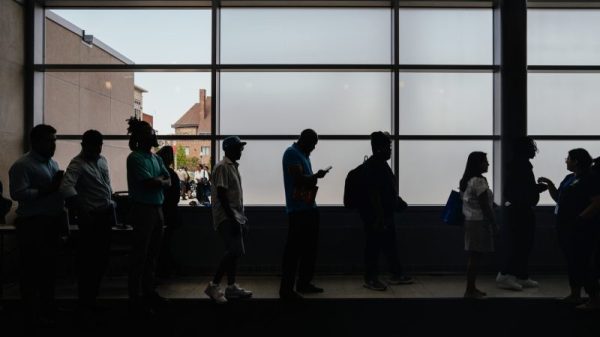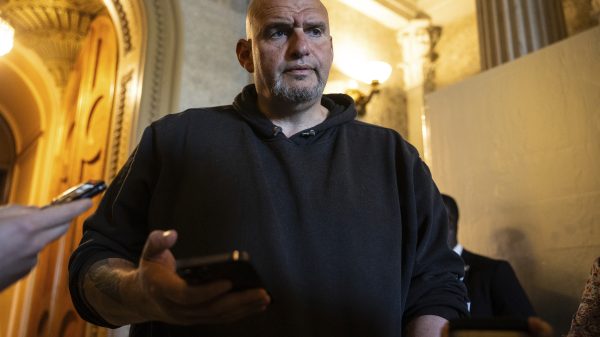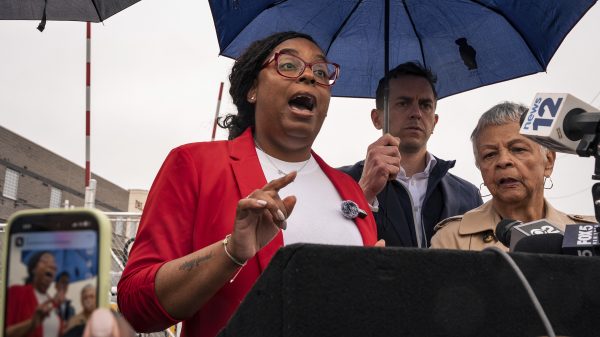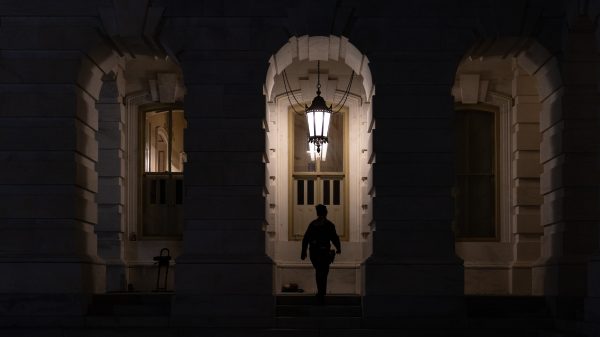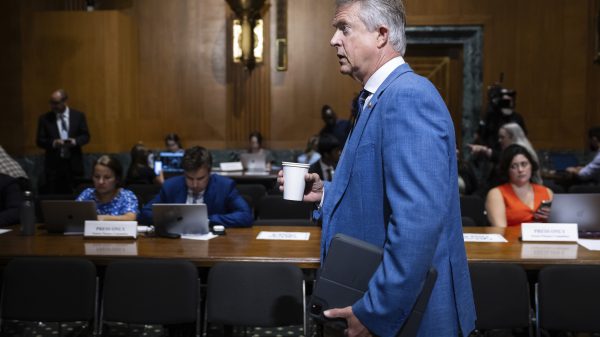A federal judge on Thursday declined to toss federal assault charges against New Jersey Rep. LaMonica McIver.
The first-term Democrat was charged with assaulting law enforcement officers following a chaotic scrum outside an immigration detention facility in May.
McIver argued that the prosecution — led by Alina Habba, a former personal attorney to President Donald Trump whom he picked to be the state’s top federal prosecutor — was unfair and that she was shielded from the charges by the Constitution’s “speech or debate” clause, which grants members of Congress a form of immunity that is mostly impenetrable in investigations relating to the official duties of lawmakers.
U.S. District Judge Jamel Semper, an appointee of former President Joe Biden, disagreed and refused to toss two of the three counts, while reserving judgment on a third until he sees more evidence.
“Defendant’s active participation in the alleged conduct removes her acts from the safe harbor of mere oversight,” he said. “Lawfully or unlawfully, Defendant actively engaged in conduct unrelated to her oversight responsibilities and congressional duties.”
McIver is accused in a three-count indictment of slamming a federal agent with her forearm, “forcibly” grabbing him and using her forearms to strike another agent. Allegations of physical violence by a sitting member of Congress are rare.
The alleged assaults occurred during a 68-second span in the midst of a three-hour oversight visit to the Delaney Hall Detention Facility in Newark, New Jersey, when McIver and fellow Democratic Reps. Bonnie Watson Coleman and Rob Menendez were part of a chaotic scene as immigration agents moved to arrest city Mayor Ras Baraka on a trespassing charge that was later dropped.
Semper seemed to draw a line between alleged contact inside a gated area at Delaney Hall, which the congressional Democrats were allowed to inspect, and actions outside, which is where agents moved to arrest Baraka and where prosecutors allege that McIver committed two crimes: assaulting an agent and impeding that arrest.
The count Semper did not fully rule on involves alleged contact between McIver and an agent inside the gated area after the scrum outside the gate.
The ruling — which is likely to be appealed — is a victory for Habba’s office. While she calls herself the “acting U.S. Attorney,” another judge in August ruled she was unlawfully serving in that role. An appeals court is now considering that ruling.
Semper also rejected a more long-shot attempt by McIver’s attorneys to dismiss the whole case based on selective prosecution. McIver’s team argued for that based on Trump pardoning hundreds of people who attacked police at the Capitol on Jan. 6, 2021, and the Justice Department dropping numerous additional assault cases at Trump’s direction, despite video evidence of the attacks.
“Irrespective of the pardon, the January 6 defendants are not similarly situated to Defendant because the facts and circumstances surrounding their criminal cases are unambiguously distinct,” Semper wrote.
While McIver quoted Trump and Habba’s rhetoric to claim vindictive prosecution — including Habba’s wish to “turn New Jersey red” — Semper ruled that McIver failed to demonstrate the case against her is “the result of personal animus harbored by the prosecution.”
Spokespeople for McIver and Habba did not immediately comment on the ruling.

